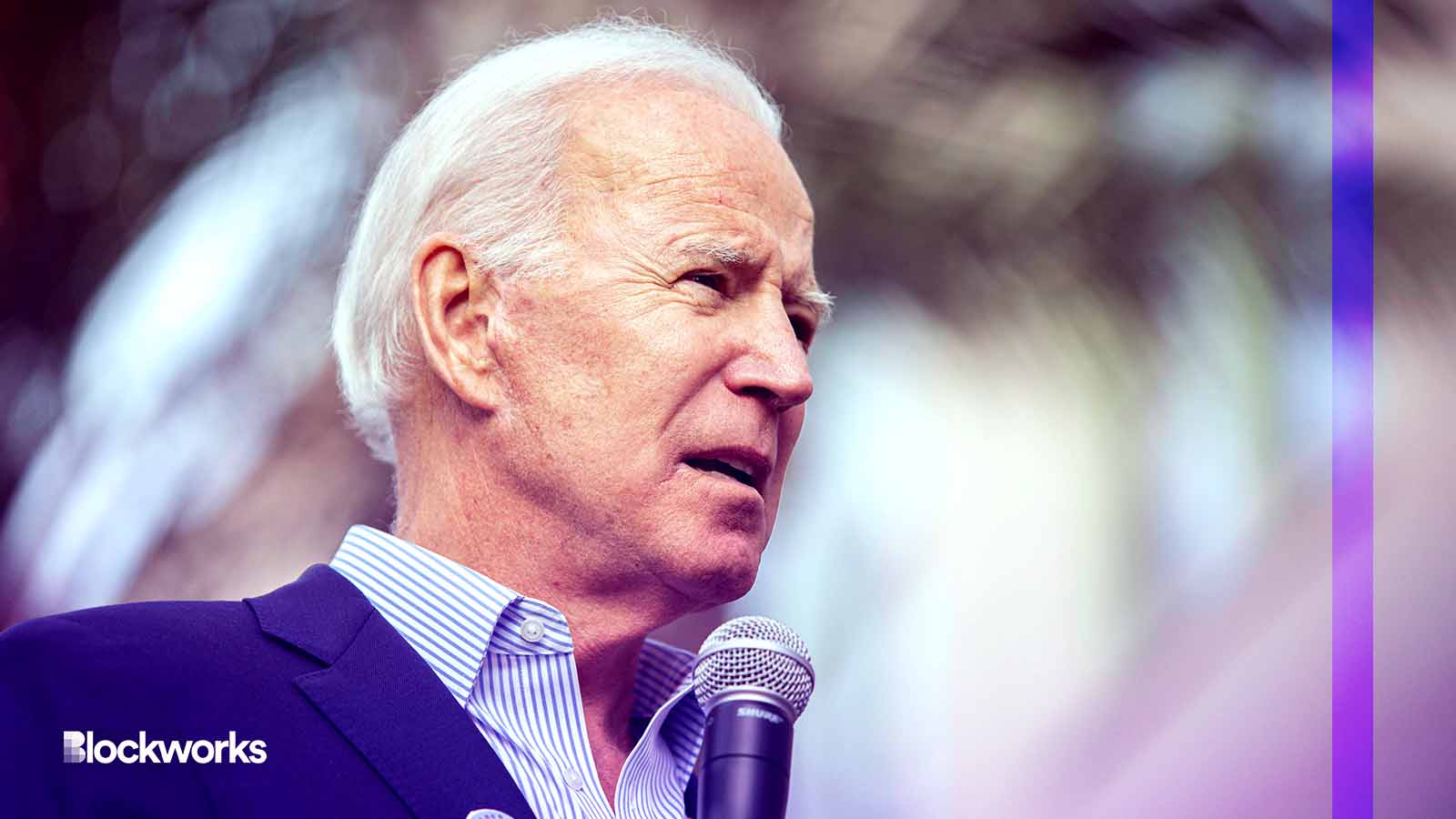Conservative Think Tank Stamps an ‘F’ on Biden’s Crypto Tax Proposal
The American Institute for Economic Research is dragging the White House for its purported “ignorance about energy usage, bitcoin, and economic policy”

US President Joe Biden | YASAMIN JAFARI TEHRANI/Shutterstock modified by Blockworks
A conservative think tank isn’t happy with President Biden’s proposed tax on crypto miners.
The American Institute for Economic Research, in fact, was evidently displeased enough with the Biden administration’s latest crypto initiative that it gave a failing grade to the president’s Council of Economic Advisors (CEA) — the federal agency that put out the proposal on May 2.
Under the proposal, the Digital Asset Mining Energy (DAME) tax would eventually impose a federal 30% charge on the costs associated with crypto mining. The industry’s crypto mining efforts are typically concentrated on bitcoin (BTC), as well as other proof-of-work blockchains.
The American Institute for Economic Research’s Joshua Hendrickson in the AIER’s report took issue with the administration’s proposed incentive structure.
“Taxing a particular type of electricity-using activity does not provide an incentive to reduce electricity,” Hendrickson wrote in the report. “It provides an incentive to switch from the taxed electricity-using activity to other, untaxed, electricity-using activities.”
The chief executive of the publicly traded mining operator Marathon Digital, has been more blunt. CEO Fred Thiel told Blockworks earlier this month that a tax as high as 30% would “essentially shut them down,” referring generally to bitcoin miners with US operations.
Hendrickson at the time also summed up the CEA’s argument: Bitcoin mining is a negative practice to a number of third parties. The CEA has claimed that bitcoin miners drive up the end price of electricity for consumers.
The problem with that line of reasoning, according to Hendrickson, is that the CEA is misplacing its financial blame.
“The source of the environmental cost is electricity generation, not bitcoin mining,” Hendrickson wrote. “If generating electricity imposes costs on third parties, then the externality argument implies that a tax should be placed on electricity generation.”
One key CEA argument as outlined in its proposal: Pollution from electricity generation, not consumption, “falls disproportionately on low-income neighborhoods and communities of color.”
The US Energy Information Administration estimated that 60% of all energy used for electricity generation had effectively been wasted through July 2020, some of the most recently available federal data.
Bitcoin miners may be able to combat climate change. Hendrickson wrote that buying leftover electricity units from power grids — especially electricity generated from natural gas — is one example of that.
“Stranded natural gas is typically burned, emitting methane in the process,” he wrote. “People are purchasing this stranded natural gas and using it to generate electricity to power bitcoin miners. In doing so, they are limiting harmful methane emissions.”
The left-leaning Greenpeace, meanwhile, in a May 5 statement said that the DAME tax is a step in the right direction, adding that the US can’t tax its way out of climate change.
The DAME tax originally stemmed from a March 9 federal government budget proposal.
Its proposed phase-in was set to last three three years, with the tax beginning at 10% and then increasing another ten percentage points each year, according to a document from the Treasury.
Get the news in your inbox. Explore Blockworks newsletters:
- The Breakdown: Decoding crypto and the markets. Daily.
- Empire: Crypto news and analysis to start your day.
- Forward Guidance: The intersection of crypto, macro and policy.
- 0xResearch: Alpha directly in your inbox.
- Lightspeed: All things Solana.
- The Drop: Apps, games, memes and more.
- Supply Shock: Bitcoin, bitcoin, bitcoin.





